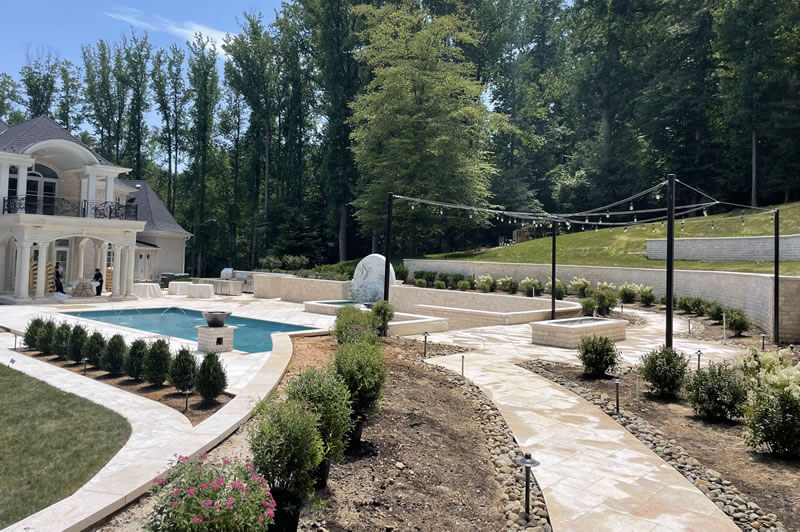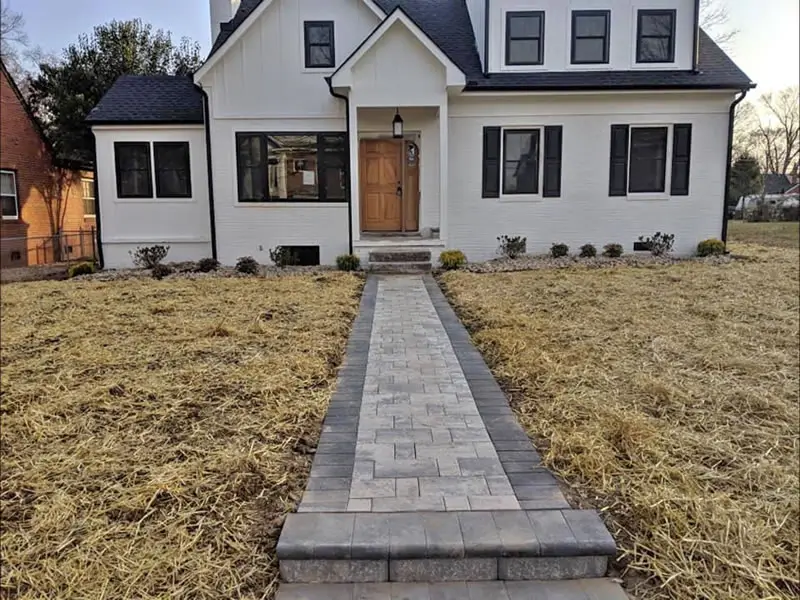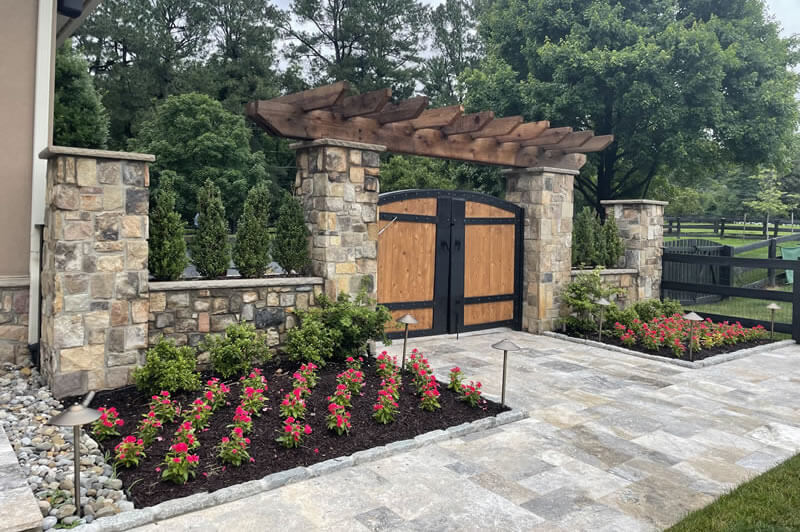Pathways
Pathways
Pathway Design
Pathways are essential elements in landscape design, providing functional connections between different areas within a space and contributing to the overall aesthetics. Whether in a garden, park, or urban setting, well-designed pathways can enhance the user experience, guide movement, and complement the surrounding environment.
Contact Outdoors by Neptune to discuss your project.



How Can a Custom Built Path Add Value to your Home?
Custom-built pathways can add value to your home in several ways:
Enhanced Curb Appeal: A custom pathway can significantly enhance the curb appeal of your home. It creates an inviting entrance that sets the tone for the rest of the property, leaving a positive first impression on visitors and potential buyers.
Improved Functionality: Well-designed pathways improve the functionality of your outdoor space by providing clear routes for foot traffic. They can connect key areas of your property, such as the driveway, front door, backyard, or garden, making navigation easier and more convenient.
Increased Safety: A custom-built pathway can enhance safety by reducing the risk of tripping or slipping on uneven or unstable surfaces. Properly constructed pathways with durable materials and good drainage help prevent accidents, which is particularly important for households with children, elderly individuals, or guests.
Landscaping Enhancement: Pathways can serve as a landscaping feature, guiding the eye through your outdoor space and highlighting key elements such as flower beds, trees, or water features. Incorporating custom designs, materials, and landscaping elements into your pathway can elevate the overall aesthetic appeal of your property.
Personalization and Individuality: Custom-built pathways allow you to express your personal style and preferences, adding a unique touch to your home. Whether you prefer a classic, modern, rustic, or whimsical design, a custom pathway can reflect your individuality and make your property stand out in the neighborhood.
Increased Property Value: A well-designed and professionally installed pathway can increase the resale value of your home. Potential buyers often perceive custom landscaping features as desirable amenities that enhance the overall appeal and functionality of the property, leading to a higher selling price.
Low Maintenance: Depending on the materials used, custom pathways can be relatively low maintenance, requiring minimal upkeep compared to other landscaping features. This can be attractive to homeowners and buyers alike, as it reduces the time and effort required to maintain the outdoor space.
Overall, custom-built pathways add value to your home by enhancing curb appeal, improving functionality and safety, enhancing landscaping, allowing for personalization, increasing property value, and offering low maintenance benefits.
Pathways can be made of various materials, each offering different aesthetic, functional, and maintenance characteristics. Some common materials used for pathways include:
Concrete: Concrete is a versatile and durable option for pathways. It can be poured into various shapes and sizes, allowing for customization. Concrete pathways are relatively low maintenance and can be stamped, stained, or dyed to mimic the look of other materials such as stone or brick.
Brick: Brick pathways provide a classic and timeless look. They are durable and can withstand heavy foot traffic. Brick pathways can be laid in different patterns, such as herringbone or basket weave, adding visual interest to the landscape.
Stone: Natural stone, such as flagstone, slate, or granite, creates a rustic and elegant pathway. Stone pathways offer unique textures and colors, giving your outdoor space a natural aesthetic. While more expensive than some other materials, stone pathways are highly durable and require minimal maintenance.
Gravel: Gravel pathways are a cost-effective option that adds a casual and relaxed vibe to your outdoor space. Gravel comes in various sizes and colors, allowing for customization. Gravel pathways are easy to install and drain well, but they may require occasional raking to maintain their appearance.
Pavers: Pavers are precast concrete, stone, or clay blocks that can be arranged in different patterns to create pathways. They offer a wide range of colors, shapes, and sizes, allowing for creative designs. Paver pathways are durable, easy to install, and require minimal maintenance.
Wood: Wood pathways, typically made of treated lumber or hardwoods like cedar or redwood, provide a warm and natural look to outdoor spaces. Wood pathways are relatively easy to install and can be customized to fit any landscape design. However, they may require more maintenance than other materials, such as regular sealing or staining to protect against weathering and decay.
Composite Materials: Composite materials, such as recycled plastic or composite decking, offer a durable and low-maintenance option for pathways. They are resistant to rot, insects, and fading, making them ideal for outdoor use. Composite pathways come in various colors and textures, mimicking the look of natural wood or stone.
- When choosing the material for your pathway, consider factors such as durability, maintenance requirements, aesthetic appeal, and budget to select the option that best suits your needs and preferences.
Have Questions? Call us today at (703) 433-2211

